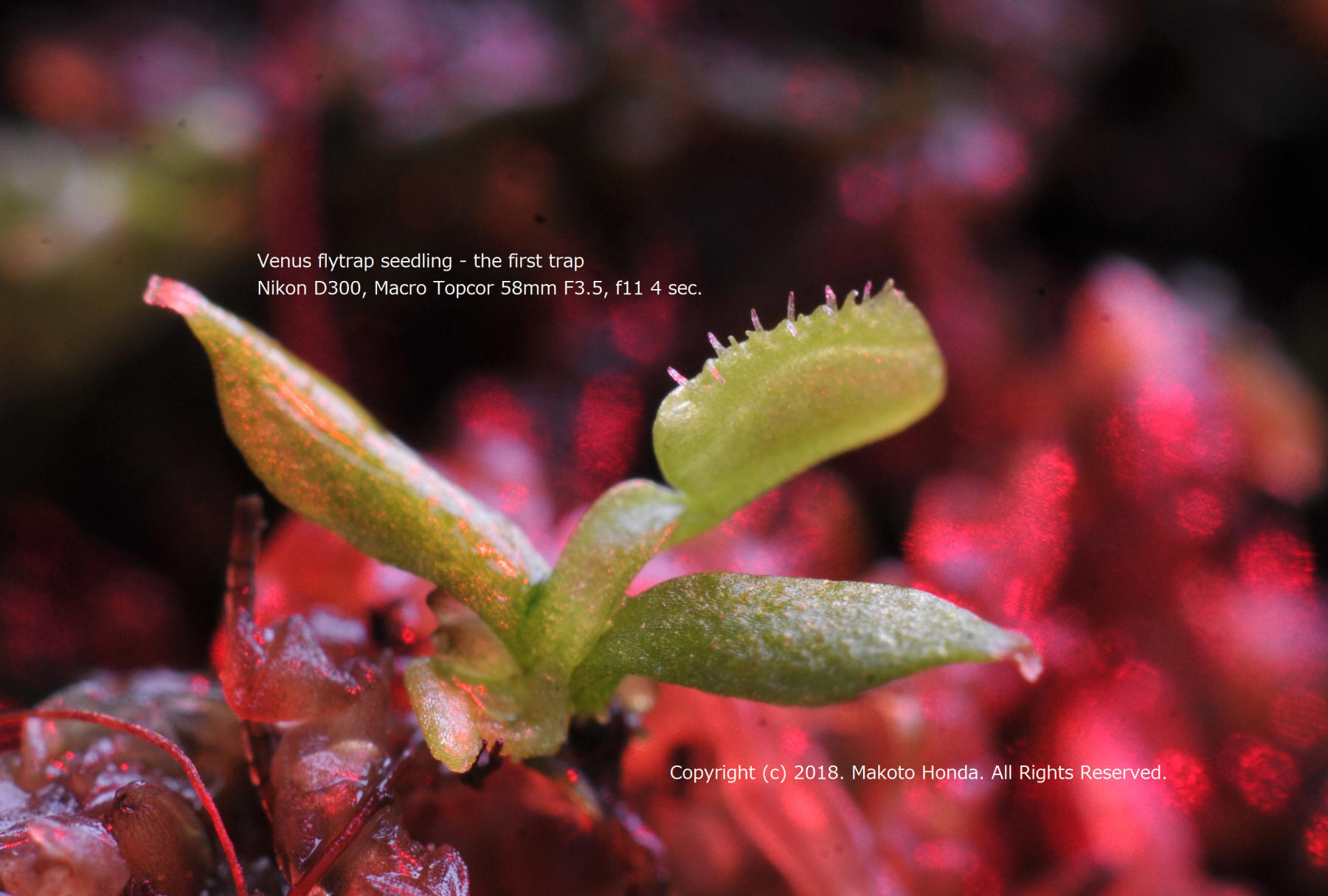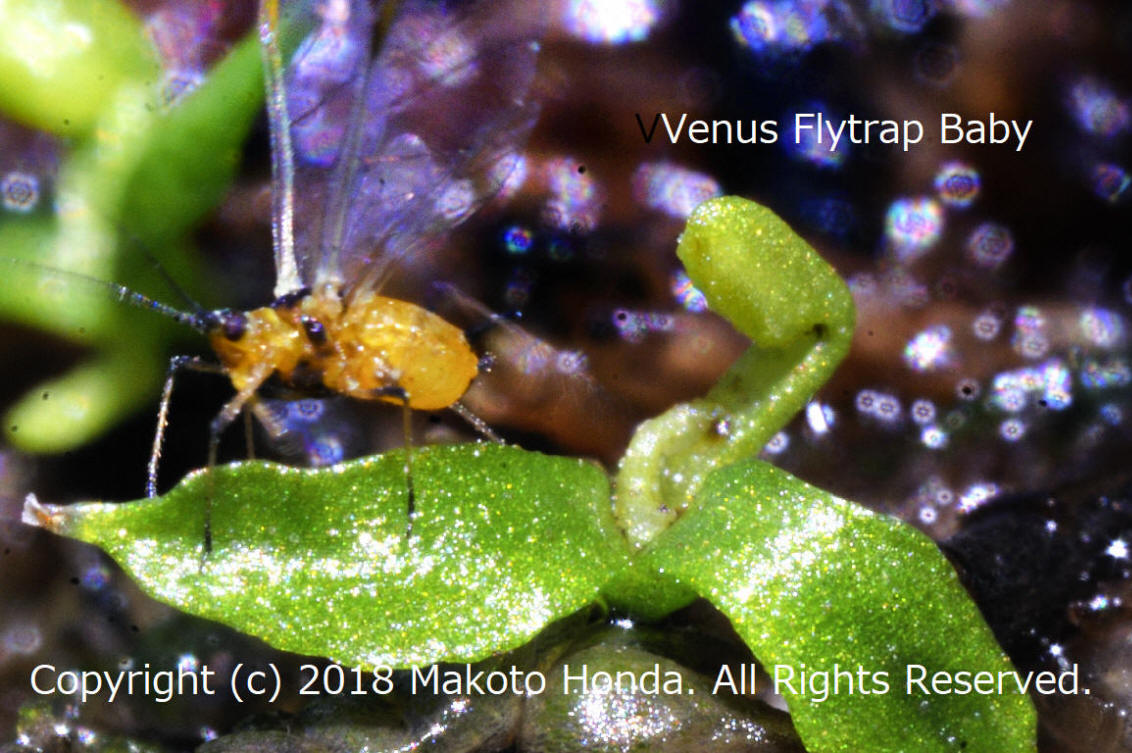HOME
2018-09-03 Venus Flytrap Germination -
The Very First Trap After Cotyledons

Venus Flytrap Germination - Seedling (Infrared Laser)
2018-September-03. Nikon D300,
Macro Topcor 58mm F3.5 with extension, at f/11 at 1/4 sec (daylight) with an
infrared
laser.
Venus flytrap seedling, one-month old. High-power laser application to reverse the snap-trap evolution - just kidding.
The very first trap is about to open
- in a day or so.
Two more trap leaves are developing from the rosette center.
The Venus flytrap is very slow-growing. It took a month to reach this point from
germination.
Trying to see if I can observe
anything which might reveal the process of evolution
- how this snap-trap had evolved out of Drosera regia ancestor.
The slight tilt of the trap portion
to the right is noticeable.
Exactly the same tilt clearly manifests in the adult Aldrovanda traps, as
noted by F. E. Lloyd (1942).
Lloyd comments that this is advantageous to Aldrovanda but no benefit to
Dionaea.
Lloyd did not comment on the evolutionary context of this tendency.
To me, this is a very clear evidence
that Dionaea came from Aldrovanda.
"The theory of recapitulation."
This "trap-tilting" trait acquired in the ancestor of Aldrovanda,
the trait evidently
useful and critical in prey capture,
is carried over to Dionaea, at least in its embryonic (and juvenile,
sometimes even in adult)
stage.
Along with preponderance of other
evidence,
we can conjecture that the extant land plant, the Venus flytrap,
descended from an ancient aquatic plant, the common ancestor of Dionaea
and Aldrovanda.
The snap-trap evolution, which occurred only once in the history of angiosperms
on earth,
took place under the evolutionary pressure in the process of transition into an
aquatic environment.
This aquatic common ancestor (still
possessing the "root", by the way)
must have developed this trap-tilt posture in the water,
which is a definite advantage in prey capture for the stuck-up foliage
arrangement
as we see in the extant Aldrovanda.
The ancestor of Dionaea then
branched out from this common ancestor some 50 million years ago (give or take),
taking the snap-trap out of the water and to the land...
"Oh, man! This works pretty well in the air too!"
.

Venus Flytrap Germination - Seedling: "Please come
back in two weeks - when I am ready to eat."